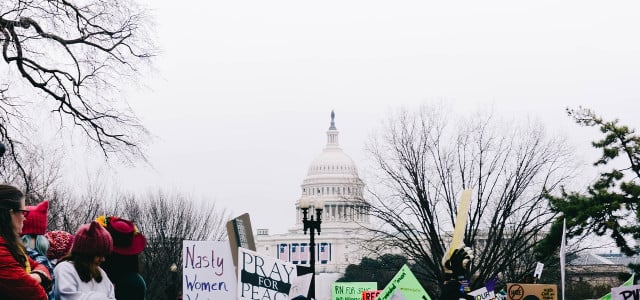In the wake of the historic Supreme Court leak, the air is heavy with fear of the unknown. What do the recent changes mean for the future of abortion rights in the US?
Despite the fact that as of May of 2021, eighty percent of US Americans support abortion in all or most cases, abortion rights remain a much more contentious topic in the United States than in other Western nations. US abortion history dates back to 1650’s colonial America, when abortion was a practiced medical procedure which was generally safe and morally accepted.
Abortion law was not written until 1821, when Connecticut restricted abortion to before “quickening.” This refers to the first time the parent feels the baby kick, which typically occurs within the first fourteen to twenty-six weeks. Several states followed in Connecticut’s footsteps, criminalizing abortion after “quickening,” however the laws were hazy. It was not until after 1860 that US states began making abortion before “quickening” illegal as well.
The Century of Criminalization
The mid 19th-century marks the start of what Planned Parenthood deems abortion’s “century of criminalization.” Kicking off with the 1847 formation of the male-dominated American Medical Association, prejudice against reproductive healthcare workers (particularly women) caused their obstetric services to be phased out. Over time, the AMA launched a full criminalization campaign against abortion and female healthcare providers. While they believed they were rightful in regulating female bodies, the AMA at the time was made up of physicians with little knowledge of reproductive health. By 1880, every state government had made abortion illegal, with a few states making exceptions for extreme circumstances. In the early 1900’s, abortion laws continued to become more conservative. According to Planned Parenthood, this was exacerbated by white male leadership’s concern over increased immigration, who saw abortion laws as a way to increase the white population by forcing wealthy white women to have children.
As criminalization of abortion was revealed to lead to higher maternal deaths at the hands of unsafe, illegal abortions, feminists and physicians began advocating for legal reform. The Association for the Study of Abortion was founded in 1964, arguing for the performance of medically necessary abortions on a case-by-case basis. More radical feminists such as Pat Maginnis began petitioning for the legalization of abortion altogether. In 1969, the Jane Collective was created to help women get access to safe and affordable, but illegal, abortions. While underground activists were working to provide illegal abortions, several states began reforming and repealing abortion laws. Finally, in 1973 Roe v. Wade and Doe v. Bolton legalized abortion across all fifty states, claiming abortion boards to be unconstitutional, and citing the Fourteenth Amendment – the constitutional right to privacy.
More Recent History of Abortion in the US
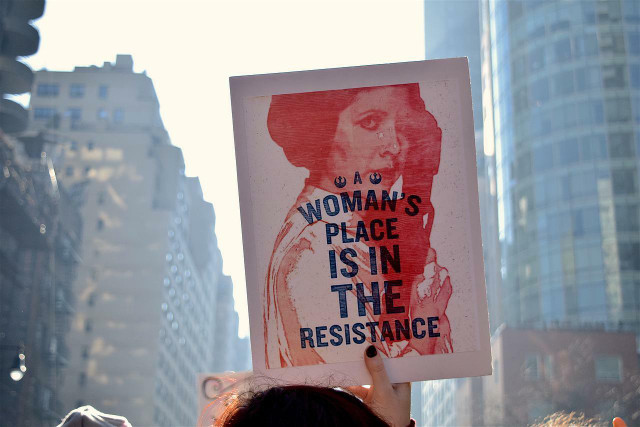
(Foto: CC0 / Pixabay / bones64)
Since 1973, modern abortion rights have remained under attack. In recent years, many states have passed so-called “heartbeat bills,” banning abortion after detection of a heartbeat. This occurs at around six weeks, before many people even realize they are pregnant. Conservative states have also worked strategically to make abortions inaccessible or unaffordable for many. This has been achieved through cutting funding, decreasing the number of available abortion clinics, and forcing those recieving Medicaid to pay out of pocket.
Donald Trump’s 2016 election further emboldened anti-abortionists to push harder for the criminalization of abortion, with state restrictions reaching a record-high in 2021. Many of these laws have put both Roe v. Wade and Doe v. Bolton at risk, as the regulations are discussed in court. In 2021, Mississippi specifically petitioned the Supreme Court to overturn Roe v. Wade in their review of the state’s fifteen week abortion ban. This case is known as Dobbs v. Jackson Women’s Health Organization.
Notably, the former president Trump confirmed three Supreme Court justices during his time in office, giving conservatives a six to three majority. Two of the six men now sitting on the Supreme court face credible sexual misconduct and assault allegations. This is particularly concerning considering these men are making decisions governing individuals’ rights and bodies.
Dobbs v. Jackson Women’s Health Organization Decision
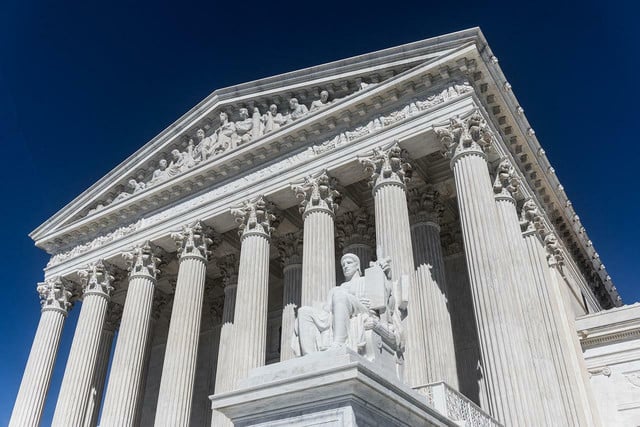


(Foto: CC0 / Pixabay / MarkThomas)
The future of US abortion rights is currently riding on the Dobbs v. Jackson Women’s Health Organization case. This month, the Supreme Court’s majority opinion draft was leaked, stating their provisional decision to overturn Roe v. Wade, based on the argument that the constitution does not stipulate abortion rights. The February 10th document states abortion rights should be put into the hands of state governments.
Although the Supreme Court has until the end of June to deliver their official decision, the leaked document has been verified as legitimate by Chief Justice Roberts. While the opinion is a first draft, the decision itself seems all but final.
Abortion Is a Human Right
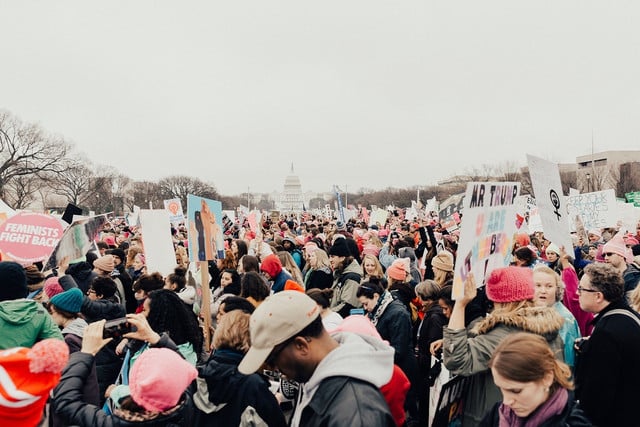


(Foto: CC0 / Pixabay / StockSnap)
The argument for abortion as a human right is relatively simple. The right to legal, safe, accessible and affordable abortions for all is imperative, in order to prevent dangerous “back-door” abortions and unwanted births. Abortion is health care and therefore a human right. Individuals need to have the right to make their own choices regarding their bodies, lives and futures. Any individual seeking an abortion, regardless of the reason, should be able to do so without facing financial, legal, social or physical barriers.
Attacks on abortion rights are often framed as “pro-life.” In reality, this attitude is simply anti-choice. Restricting abortion rights effectively prevents people from controlling their own bodies. Laws restricting and criminalizing abortion seem designed to control the bodies of people with uteruses and uphold patriarchal, racist and classist aims, by forcing people to have children they do not want or cannot provide for. Restrictive laws convey that people with uteruses are built for procreation, and that individuals don’t have the right to bodily autonomy to decide otherwise.
In the US specifically, a country without universal health care, no guaranteed parental leave, extremely conservative and difficult to access family benefits, and obscene wealth inequality disproportionately impacting children of color, it is exceptionally morally reprehensible to outlaw abortion. Given the current state of services available for children and families, many find fault in the focus of “pro-life” activists on banning abortion, rather than advocating for increased social services, affordable healthcare, and equal rights for immigrant children, disabled children, queer children and marginalized communities. The hypocrisy is rife, and it sends the message that many people care more about unborn fetuses than existing children.
What Does This Potential Supreme Court Decision Mean?
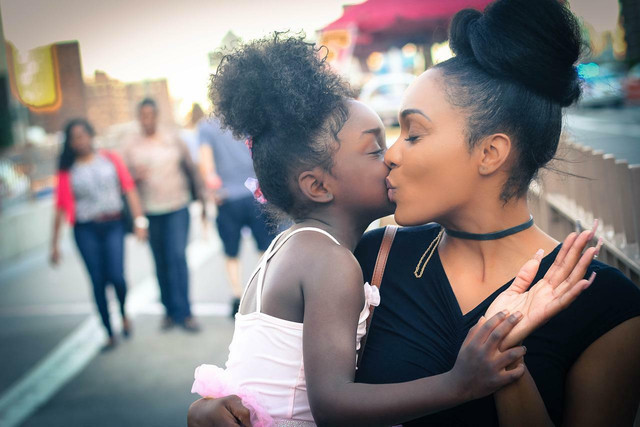


(Foto: CC0 / Pixabay / 5540867)
Currently, there are between 620,000 to 630,000 abortions in the US per year. The typical patient receiving an abortion is in their late twenties, is already a single parent and has a low-income. If the Dobbs v. Jackson decision goes through without any Justices changing their positions, the consequences will be devastating and myriad:
- Namely, even more people will lose access to safe and legal abortions. More than twenty states have laws in place already, with the overturning of Roe v. Wade in mind. These so-called “trigger bans” will immediately outlaw abortion with almost no exceptions. Kentucky, Louisiana and South Carolina would ban abortions after six weeks, while Arkansas would instill a near-total ban. While individuals within the most liberal states will still have access to abortions, those in red states typically will not.
- This will have more harmful effects on young people, rural communities, and low-income people who cannot afford to travel to neighboring states for an abortion.
- The effect will disproportionately impact and further marginalize Black, indigenous and people of color, while middle and upper-class white people will more easily be able to seek abortions out of their state. In fact, one study found that maternal deaths amongst Black women could increase by one third, if abortion was banned.
- The resulting anti-abortion laws will not actually stop abortions. The history of restrictive abortion laws both in the US and abroad makes this clear. Criminalizing abortion simply means individuals will seek abortions from illegal, underground, unregulated practices, which could result in high death tolls.
- Anti-abortion laws will also lead to unwanted births. This means families will be raising unwanted children, frequently with limited resources and finances. Children are then more likely to be neglected and go through hardship.
- Overturning Roe v. Wade, on the stipulation that the Fourteenth Amendment right to privacy is not relevant to abortion, would result in implications for other landmark cases as well. These include Supreme Court cases which expanded queer rights, including cases legalizing same-sex marriage and gay sex.
What Can You Do?
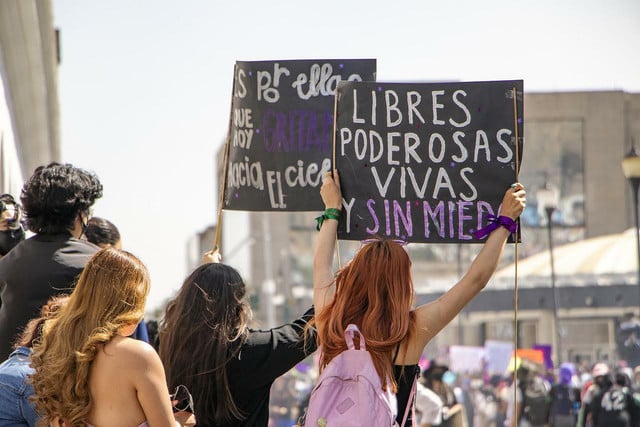


(Foto: CC0 / Pixabay / mike_ramirez_mx)
The official Dobbs v. Jackson ruling has not been released, so there is still a chance that the Justices may change their minds. US abortion rights are facing a historic moment, so now is the time to protest. Take your activism to the streets and organize, protest and demonstrate to make your voice heard. Protesting for abortion rights may change the direction of the Supreme Court decision. And if not, your voice will be heard by your state representatives. If Roe v. Wade gets overturned, your activism will be even more necessary to make sure your state government does right by their constituents.
In the long term, remember to always vote! Research your current representatives voting history on federal bills and vote with confidence for those who have your interests are heart. Democrats are already working to make abortion legalization a federal law, so make sure to continue working toward voting for individuals who support this action.
You can also donate to organizations fighting for abortion rights and reproductive health. Planned Parenthood is a great place to start. If you want to get more involved on a community level, look into local clinics and organizations in your area.
Read more:
- What is Catcalling and What You Can Do About it
- How to Make a Protest Sign and 15 Cool Ideas
- Environmental Organizations: 8 NGOs and Non-Profits Worth Supporting
Important Information regarding Health-related Topics.
** Links to retailers marked with ** or underlined orange are partially partner links: If you buy here, you actively support Utopia.org, because we will receive a small part of the sales proceeds. More info.Do you like this post?






